I left Russia the day before the war began, on 23 February. On that day, Russia celebrates Defender of the Fatherland Day, a militaristic holiday. Children in schools and kindergartens are dressed in military uniforms, and drunken men shout and harass women in the streets. Russia began pulling troops to the border with Ukraine back in the winter, so by that point we had been living in tension for months. Still, few believed in a full-scale invasion; most thought it was just a threat so that the West would finally start talking to Putin. On 22 February, my friend and I flew from St. Petersburg to Krasnodar, a city in the south of Russia, to give a performance-lecture on how the theme of love—including queer love—had been developed in performance art over the last sixty years. It was an anti-war gesture: the lecture argued that our bodies are needed to make connections, not to defend the homeland through war. We did the event, then flew from Krasnodar to the Armenian city of Gyumri on 23 February, and on 24 February I woke up and read that Russia had started an invasion of Ukraine. Within hours Rosaviation had closed flights from airports in the south of the country, so I had actually left at the last minute. I had just finished my second book and was planning to fly for a vacation for two or three weeks, but I ended up in forced migration.
It has been more than a month. I really want to go back to St. Petersburg, but now it doesn’t seem safe at all. You can be detained for a badge with a Ukrainian flag on it; in the centers and subways of Moscow and St. Petersburg, the police stop people who seem suspicious and look at their phone, checking messages. They do the same with many people at the border who are trying to fly out of Russia. That's not the worst thing that can happen: there are plenty of activists in Russia who continue to be detained and searched, and why should I be in better position than they are? But the war is paralyzing, and it's very hard to decide to do anything at all because life is just cracking at the seams.
In just over a month of war, the infrastructure for any kind of modern independent culture in Russia seems to have been completely destroyed.
"I quit too!"
Today, there is a full-fledged military censorship in Russia. All independent media outlets have been officially blocked, and largest—like Echo of Moscow or TV Rain—have been shut down completely. Below, I will describe a substantial part of what has happened in the landscape of Russian theatre and performance during this month of war. This is not an exhaustive list, but it is clear from it that almost all the key institutions which produced contemporary theatre and performance in Russia have been closed, shut down in protest, lost key people in administrations, or gone into hibernation mode; people are quitting their jobs or are being forced to quit; artists and critics are being locked up for protesting or for being suspected of expressing “incorrect” positions; theatre education, already nearly non-existent in Russia, is incorporating ecstatic pro-Putin positions and pushing out people with anti-war stances; international cultural exchange has virtually stopped; major independent cultural foundations have been declared foreign agents or are withdrawing from Russia themselves. In short, everything that has been accumulating drop by drop since the 1990s has been trampled in a month of war, and if Russia emerges from the war as the same country, which is doubtful, people here will have to rebuild the cultural landscape from scratch.
Many dissenters have resigned quietly and without scandal or without public sanctions against them, and the public just doesn't know about a lot of things that are happening in the regions of Russia right now. Nevertheless, the day after Kovalskaya's dismissal, Mindaugas Karbauskis, the artistic director of the Mayakovsky Theatre since 2011, resigned. He wrote on Facebook, “I quit too!” Earlier, that theatre's actors had been instructed in writing not to speak out on social media about the war, so as “not to let the Theatre down.” Two days later, Laurent Hilaire, the French choreographer who has been the artistic director of ballet at the Stanislavsky and Nemirovich-Danchenko Moscow Musical Theatre since 2017, resigned. Francesco Manacorda, artistic director of the V-A-C Foundation and their House of Culture GES-2 (which opened in the winter and was to become a hot new center for contemporary culture), resigned, too. Ragnar Kjartanson prematurely terminated Santa Barbara, his long-term performance at the V-A-C. Curators Ekaterina Krupennikova and Nikita Rasskazov also quit, and a group of young Russian performance artists declined to participate in the Foundation's projects. As a result, GES-2 suspended all exhibition and performance activities indefinitely, as did the private museum GARAGE, Russia's largest museum of contemporary art. Conductor Vasily Petrenko resigned as artistic director of the Svetlanov State Academic Symphony Orchestra, Thomas Sanderling resigned as artistic director and chief conductor of the Novosibirsk Philharmonic Orchestra, and Tugan Sokhiev resigned as chief conductor of the Bolshoi Theatre.
Other dissenters lost their leadership positions in cultural institutions. The heads of two theatre museums, the Shchepkin House Museum and the Meyerhold Museum-Apartment of Meyerhold, were fired without explanation. The latter was closed “for technical reasons.” (In conjunction with the destruction of the Meyerhold Center, it is worth recalling that the theatre director Vsevolod Meyerhold was shot after three weeks of torture by Stalin's regime, and his wife was killed by unknown assailants after complaining about a NKVD (People's Commissariat for Internal Affairs) officer.) In Novosibirsk, the Department of Culture fired Yulia Churilova, director of the First Theater, without any explanation. Shortly before that, anonymous telegram-channels affiliated with the security services had attacked her for plans to show a play in Ukrainian, Judith, the Secret Diary, in the One-Two-Three. festival. In Ulan-Ude, Sergey Levitsky, who openly declared his anti-war and anti-Putin stance on social media, was fired from the position of artistic director of the Bestuzhev Theatre. He was also fired from the local Institute of Culture, and the theatre cancelled all of his shows. Professor Alyona Karas, who had taught at the country’s main theatre university, Russian Institute of Theatre Arts (GITIS), for twenty-five years, resigned in anti-war protest. She did this after the rector of GITIS, along with other rectors of major theatre, music, and film universities in Russia, signed—as representatives of the Association of Educational Institutions of Arts and Culture—a letter in support of the “special operation” in Ukraine.
Dozens of theatrical shows and performance projects in various cities have been postponed or cancelled due to the foreign performers’ refusal to participate or local artists’ protests. The team behind Access Point, the St. Petersburg festival of site-specific theatre announced its closure as a sign of disagreement with Russia’s military policy. This is significant, as Access Point in St. Petersburg and the Meyerhold Center in Moscow were the last two institutions that offered real contemporary theatre and performance art to young, politically active people. The major festivals Golden Mask and Dance Open also announced the cancellation of this year's international program after the companies and directors refused to come. Performances have also been canceled by the authorities or festival/theatre managers for the anti-war stance of their participants. Thus, within the Golden Mask festival, several productions on “sensitive topics” were cancelled. One of these productions, The Golden Rooster, was cancelled by the director of the Taganka Theatre, Irina Apeksimova, after the production’s director, Maxim Isayev, spoke out against the war from the stage. Apeksimova said that “The Golden Rooster went beyond a theatrical project.” It was a purposeful policy to establish many functionaries like her in positions of power in today’s Russia.
If Russia emerges from the war as the same country, which is doubtful, people here will have to rebuild the cultural landscape from scratch.
Foreign institutions have cancelled collaborations or postponed projects with Russian artists and institutions, including Romeo Castellucci's new project with conductor Theodor Kurentzis, whose work in Russia supported with money from the sanctioned VTB Bank. Russian artists who have not explicitly opposed the war have been suspended or fired in many places outside of Russia, as in the cases of Anna Netrebko, Valery Gergiev, Denis Matsuev, and Rimas Tuminas. The Met Opera has withdrawn from cooperation with the Bolshoi Theatre and will make its own costumes and sets for Lohengrin; they also terminated contracts with Russian performers. The Bolshoi, in turn, has postponed shows and is urgently recruiting a cast of Russians.
Performance rights and revenues have also become tools for theatremakers to support or oppose the war. One of Russia's most popular playwrights, Ivan Vyrypaev, wrote an open letter to Russian theatres in which he announced that he would donate royalties from shows to a fund providing humanitarian aid in Ukraine. Immediately afterwards, Russian theatres began to cancel performances of his plays—most citing “technical reasons,” some explicitly saying that they did not support the imposition of an “anti-Russian position.” The Globus Theatre in Novosibirsk announced that it would donate the proceeds from the play The Giant Bean “to help the children of Donbass.” (“Helping children” may sound like something noble, but in essence it is support for Putin's war. The mythical “genocide of children of Donbass” was invented as one of the reasons for the invasion). The director of the play, Polina Kardymon, said that the theatre had not asked or warned anyone from the team about this decision. Vladimir Mashkov, the artistic director of the Tabakov Theatre, was also about to donate the money the money from Seaman's Silence shows to the “national republics” occupied by pro-Russian gangs, but the son of the play's author, Alexander Galich, who lives in Ukraine, has already promised to ban the performance of his father's play. The son of Soviet classical playwright Alexander Volodin also revoked the rights of Russian theatres to stage plays based on his father's plays, and Georgian writer Tamta Melashvii revoked permission from an independent Russian theatre to perform a play based on her text, Counting, directed by Zhenya Berkovich, who had just served fifteen days in jail for participating in an anti-war protest.
As did the theatre critic and teacher Yulia Oseeva, who spent ten days in jail. Director Yuri Shekhvatov got fifteen days in jail and was beaten by two policemen when they arrested him. The performance artist and activist Katrin Nenasheva, who works with marginalized groups and troubled teens, was sentenced to fourteen days in jail after being arrested in front of her house simply because she has a background in protest speech. So were dozens of other artists, filmmakers, actors, and actresses who came out for anti-war protests in early March and got two weeks of jail time or heavy fines. And that's not the worst of it: at the Brateevo police station, as well as in some others, anti-war girl activists were beaten, doused with water, and forced to undress.

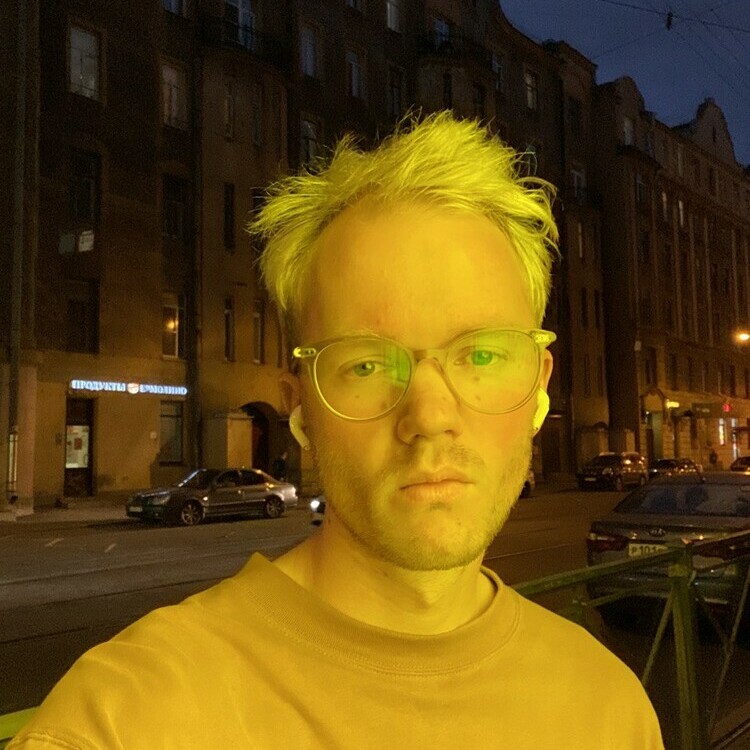
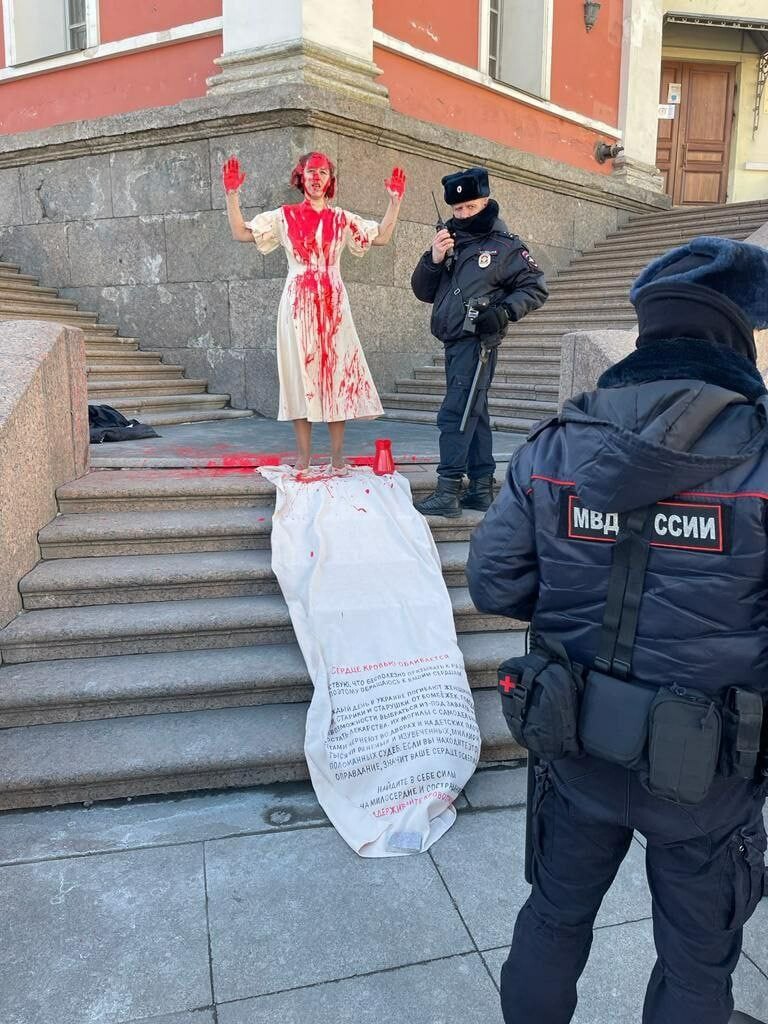
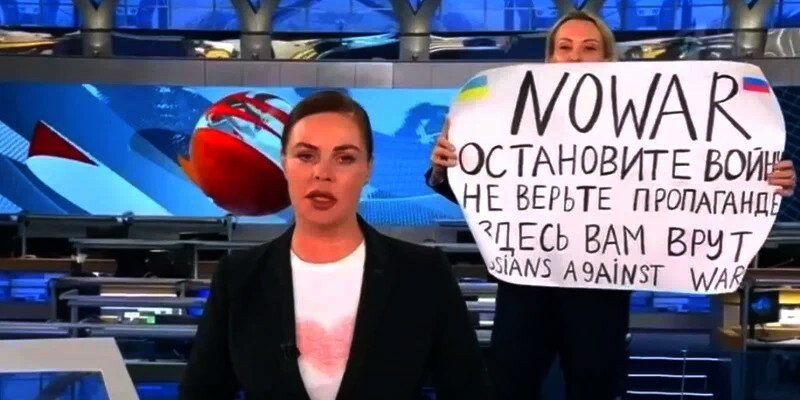
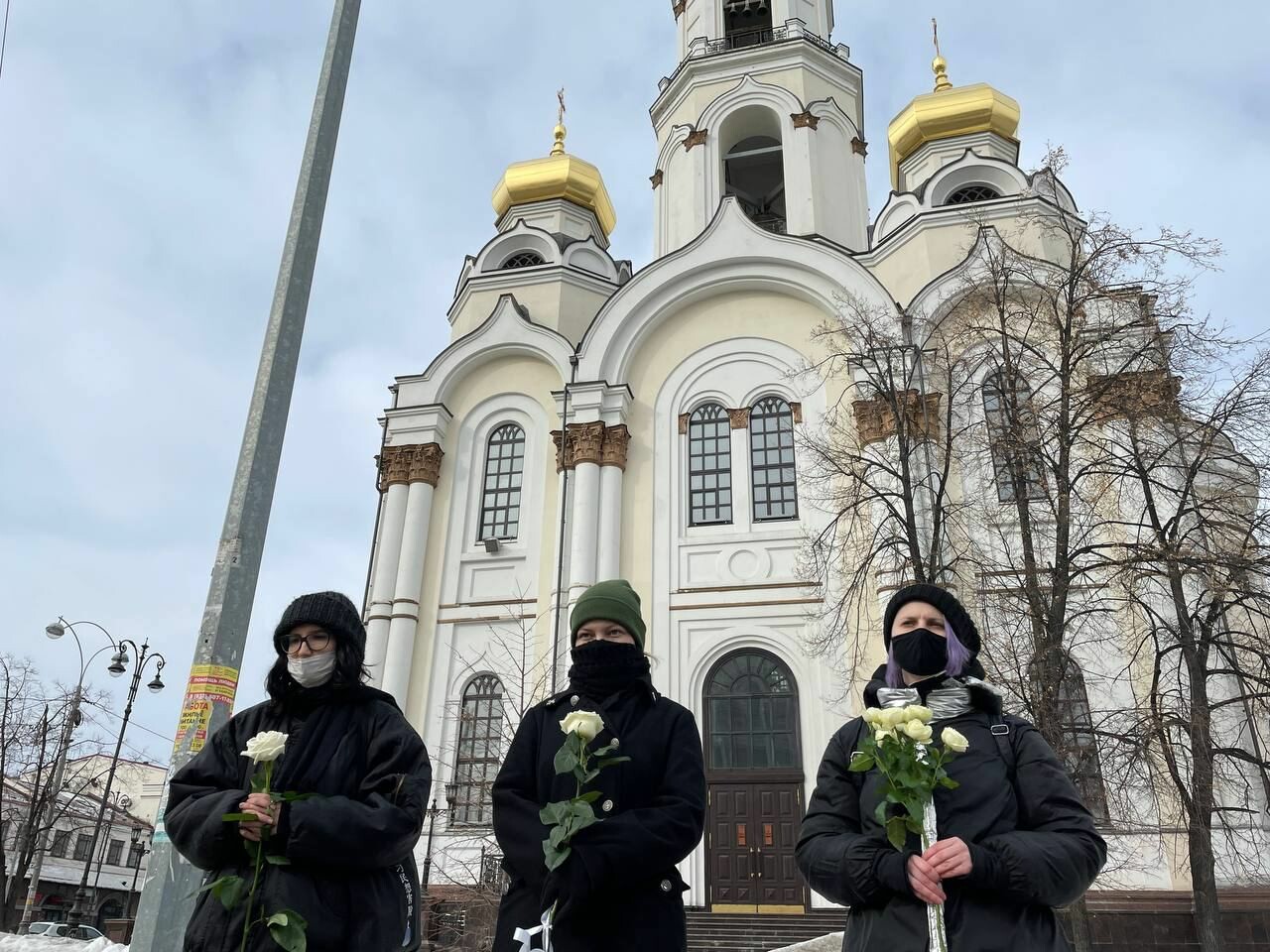
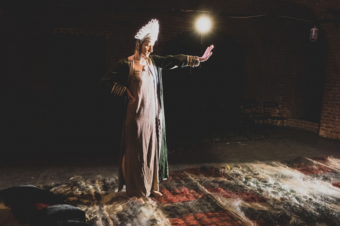

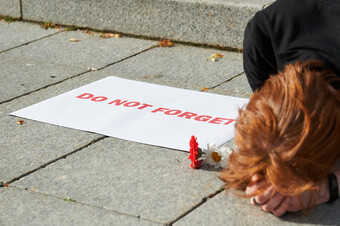
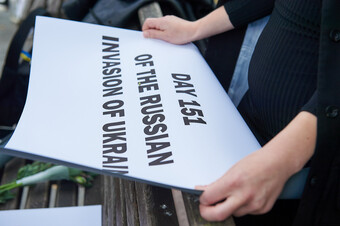
Comments
The article is just the start of the conversation—we want to know what you think about this subject, too! HowlRound is a space for knowledge-sharing, and we welcome spirited, thoughtful, and on-topic dialogue. Find our full comments policy here